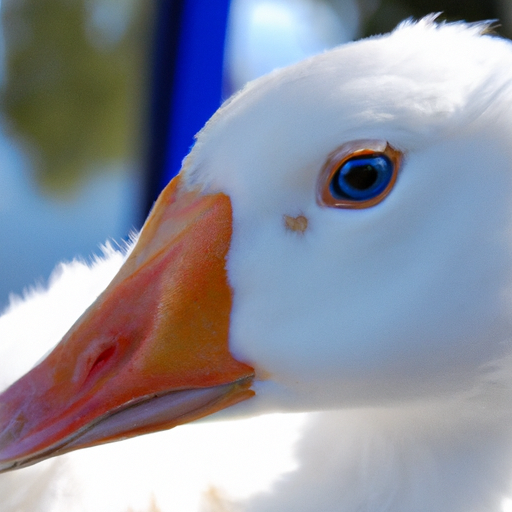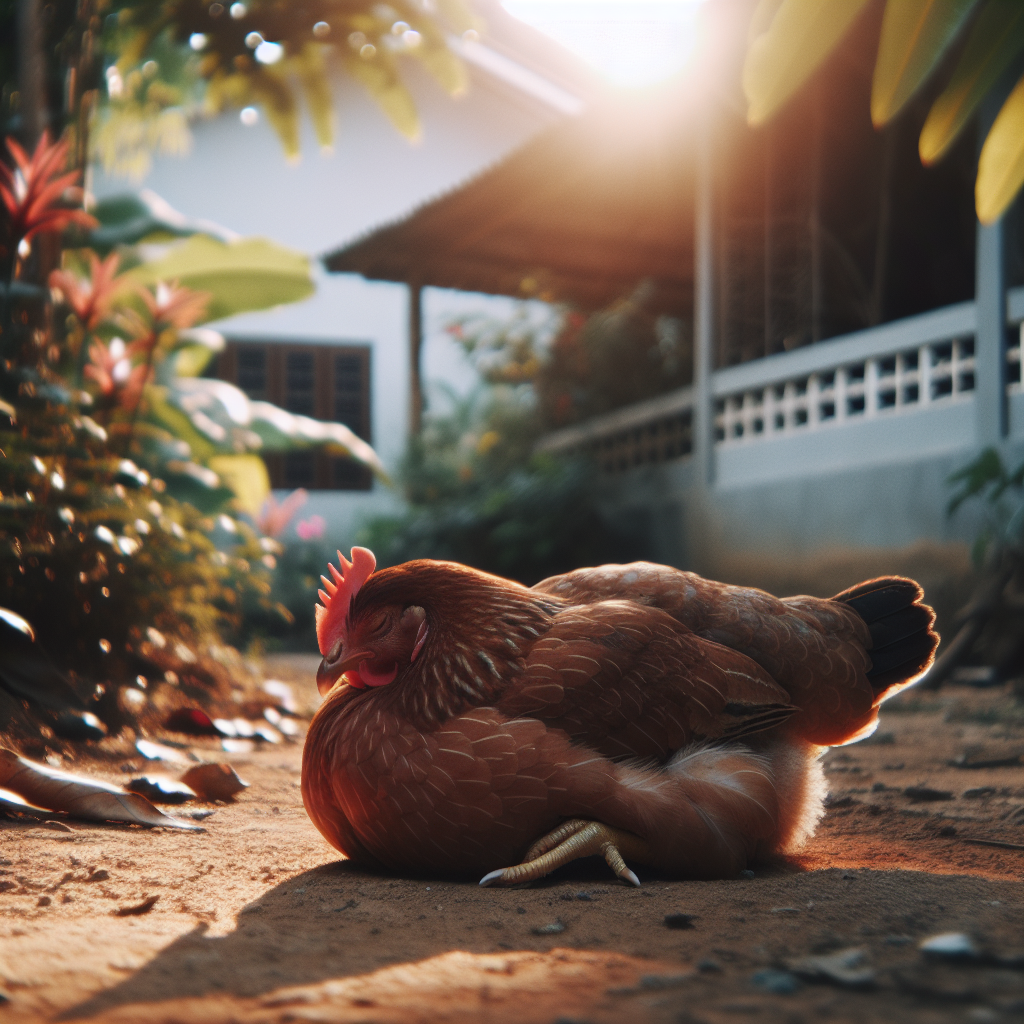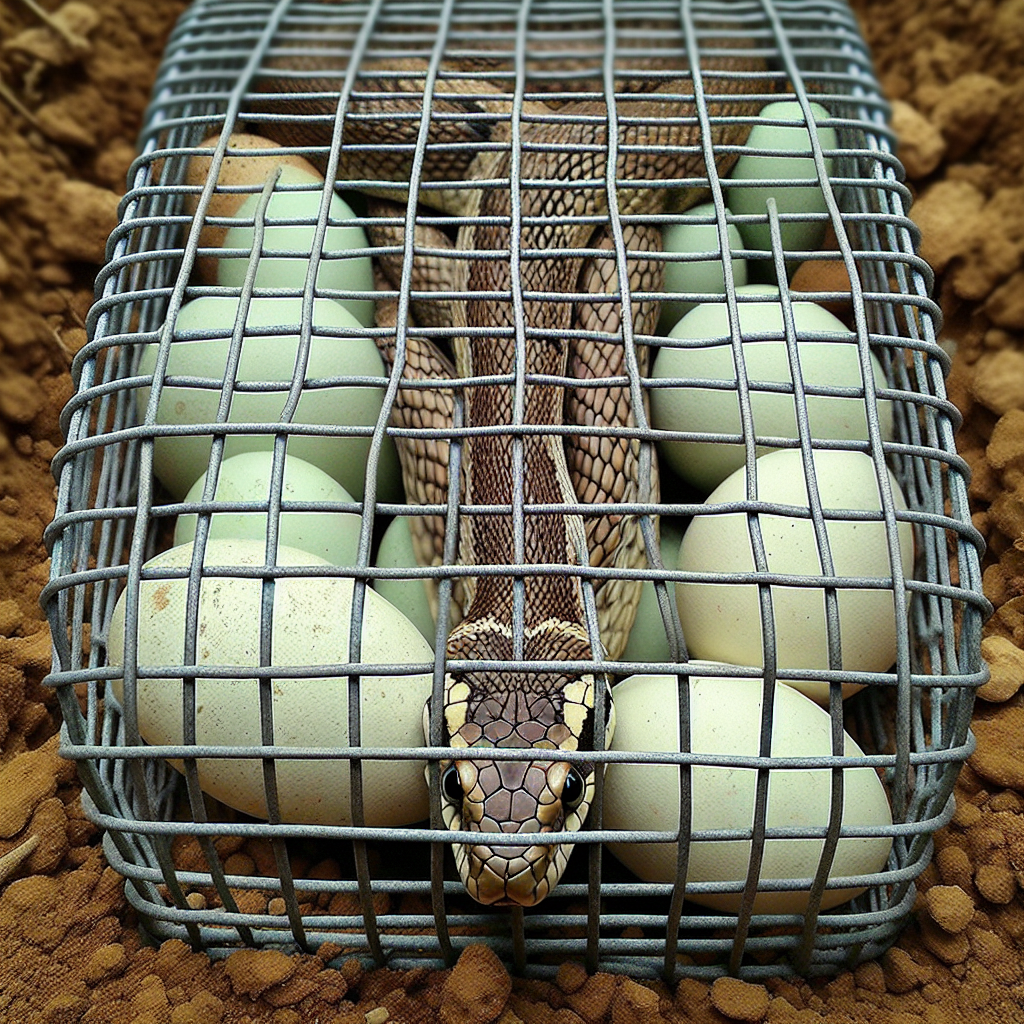Have you ever wondered if guard animals, such as dogs or geese, are truly effective in protecting chickens? We’ve all heard stories of faithful farm dogs warding off potential predators, or geese alerting their owners to impending danger. In this article, we will explore whether these guard animals live up to their reputation and provide the much-needed protection for our feathered friends. So, sit back, relax, and let’s find out if our trusty four-legged or honking protectors are truly worth their weight in feathers.
The Role of Guard Animals in Protecting Chickens
Introduction to guard animals
Guard animals play a crucial role in protecting chickens from potential predators. They serve as a valuable line of defense, utilizing their natural instincts and protective nature to deter and ward off threats. While there are different types of guard animals that can be employed for this purpose, dogs and geese are two popular choices due to their effectiveness and suitability for the task at hand.
Importance of protecting chickens
Protecting chickens is of utmost importance for several reasons. Firstly, chickens are vulnerable to a wide range of predators, including foxes, coyotes, raccoons, snakes, and even birds of prey. These predators pose a significant threat to the well-being and safety of the flock, resulting in potential injury or loss of valuable livestock. Secondly, chickens are an essential resource for many farmers, providing a steady supply of eggs and meat. By ensuring their protection, farmers can maintain a sustainable and profitable operation.
Types of guard animals
There are various types of guard animals that can be utilized for protecting chickens. These include dogs, geese, and even donkeys and llamas. Each type of animal has its own unique set of characteristics, advantages, and disadvantages, making it crucial to choose the most suitable one based on the specific needs and circumstances of the farm.
Advantages of Dogs as Guard Animals
Natural instincts and protective nature
One significant advantage of using dogs as guard animals for chickens is their innate protective instincts. Dogs are naturally territorial and are known for their loyalty towards their human companions and their belongings. This instinct translates well into protecting the flock, as they view the chickens as part of their pack. Their protective nature ensures that they remain vigilant against potential threats, deterring predators and providing an added layer of security.
Ability to deter predators
Dogs have the ability to deter predators simply through their presence and assertive behavior. Their strong scent, barking, and aggressive posturing are often enough to deter potential threats. Many predators will instinctively avoid areas guarded by dogs, as they perceive them as formidable adversaries. This deterrent effect allows chickens to feel safe and reduces the likelihood of attacks from predators.
Various dog breeds suitable for guarding chickens
Different dog breeds exhibit varying characteristics that make them suitable for guarding chickens. Livestock guardian breeds, such as Great Pyrenees and Anatolian Shepherds, are known for their protective instincts and ability to bond with other animals. Herding breeds, such as Border Collies and Australian Shepherds, possess the intelligence and agility to effectively guard and manage the flock. It is essential to choose a breed that aligns with the specific needs and responsibilities required for protecting chickens.
Disadvantages of Dogs as Guard Animals
Training requirements
While dogs possess many advantages as guard animals, they do require proper training and socialization to ensure their effectiveness. Training should include basic obedience, allowing the dog to respond to commands reliably. Additionally, exposure to chickens and other farm animals will help them understand their role as protectors. Without proper training, dogs may become overwhelmed or fail to differentiate between friend and foe, potentially leading to unintended consequences.
Potential for aggression
Aggression can be a disadvantage when it comes to using dogs as guard animals. While aggression towards predators is desirable, it is crucial to properly manage and control the dog’s behavior. Improper training or socialization can lead to aggression towards humans, which poses a significant safety concern. It is essential to strike a balance between developing a protective instinct and maintaining a well-behaved and reliable guard dog.
Compatibility with other farm animals
Another consideration when using dogs as guard animals is their compatibility with other farm animals. Some breeds may have a strong prey drive and may unintentionally harm smaller animals, such as chickens or even smaller livestock. It is crucial to assess the dog’s temperament and take measures to ensure the safety and well-being of all animals on the farm.
Effectiveness of Geese as Guard Animals
Territorial nature and loud honking
Geese possess a territorial nature, making them excellent guard animals. They form close bonds with their flock and show remarkable dedication to protecting it. Geese are known for their loud honking, which serves as a warning signal to potential predators. This honking behavior helps to alert both the chickens and the farmer of any perceived threats, allowing for quick action to be taken.
Agility and mobility
Geese are surprisingly agile and mobile, which contributes to their effectiveness as guard animals. Despite their relatively large size, they are capable of quickly and efficiently moving across the landscape, patrolling and asserting their presence in areas where chickens are vulnerable to predators. This agility allows them to respond to potential threats swiftly and effectively.
Benefits of geese in defending against predators
Geese are formidable adversaries for many predators. Their large size and territorial nature make them a deterrent to even the most determined predators. The loud honking and aggressive behavior exhibited by geese can intimidate and discourage potential threats from approaching the flock. Furthermore, geese have been known to engage in physical confrontation if necessary, adding an extra layer of defense for the chickens.
Limitations of Geese as Guard Animals
Need for safety measures
While geese can be effective guard animals, certain safety measures must be taken into consideration. Geese are not invincible and may require protection from larger predators that pose a significant threat, such as coyotes or wolves. The use of secure enclosures and fencing can prevent geese from being harmed while allowing them to still fulfill their role as guard animals.
Potential aggression towards humans
Geese can exhibit territorial aggression, especially during breeding season or when feeling threatened. This aggression can extend towards humans, posing a potential safety risk. Farmers must be cautious and take appropriate measures to handle and interact with geese safely to minimize the risk of injury.
Sensitivity to climate conditions
Geese have specific climate requirements, as extreme heat or cold can affect their ability to properly protect the flock. In particularly hot climates, geese may become lethargic and less vigilant, compromising their effectiveness as guard animals. Conversely, extreme cold can cause health issues for geese, impacting their ability to adequately perform their guard duties. Providing appropriate shelter and managing their environment is crucial for their well-being and efficacy.
Alternatives to Dogs and Geese
Donkeys and llamas as guard animals
In addition to dogs and geese, donkeys and llamas are viable options for safeguarding chickens. Donkeys have a natural instinct to protect smaller animals and can serve as a deterrent to predators. Llamas, on the other hand, have been used to guard livestock, including chickens, due to their alert nature and ability to chase off threats.
Benefits and drawbacks of donkeys
Donkeys excel at protecting against large predators, such as coyotes or feral dogs. Their size, strength, and calm temperament make them an effective deterrent. However, donkeys may require additional training and socialization to ensure compatibility with chickens. Some donkeys may exhibit aggression towards smaller animals, which can pose a risk to the flock if not addressed.
Benefits and drawbacks of llamas
Llamas have a natural inclination to be protective and alert. They have excellent eyesight, keen hearing, and acute awareness of their surroundings, making them adept at detecting potential predators. Llamas also have a reputation for effectively defending small livestock, including chickens. However, llamas may not be as effective against aerial predators like birds of prey, and their protective nature may lead to aggression towards unfamiliar animals or humans if not properly managed.
Factors to Consider When Choosing a Guard Animal
Farm size and layout
The size and layout of the farm play a crucial role in determining the most suitable guard animal. Larger farms may require multiple dogs or geese to adequately cover the entire property, while smaller farms may only need one or two animals. The layout of the farm, including any natural barriers or high-risk areas, should also be considered when choosing a guard animal.
Predator threats in the area
Understanding the specific predator threats in the area is essential for selecting an appropriate guard animal. Different predators may require different defense strategies, and certain animals may be more effective against specific threats. Researching the local predator population and their behaviors will aid in making an informed decision.
Animal compatibility
Considering the compatibility of guard animals with the existing farm animals is crucial. Dogs, for example, should be well-socialized and accustomed to being around chickens and other livestock. Geese may require separate enclosures or carefully managed introductions to ensure the safety and well-being of all animals involved. Compatibility issues should be addressed to prevent conflicts and promote a harmonious environment.
Training and Socialization of Guard Animals
Basic obedience training
Proper training and socialization are integral to ensure the effectiveness of guard animals. Basic obedience training should include commands such as “sit,” “stay,” and “come,” allowing the animal to respond promptly and reliably to instructions. This training forms the foundation for more advanced commands and ensures that the animal can be controlled in various situations.
Exposure to chickens and other animals
Guard animals should be gradually exposed to chickens and other farm animals to familiarize them with their presence. This exposure helps the animals understand their role and build a bond with the flock they are protecting. Supervised interactions and positive reinforcement can reinforce desirable behavior and minimize any potential conflicts.
Establishing boundaries and control
Establishing boundaries and control is essential for the proper management of guard animals. Fences and enclosures can demarcate areas where chickens are kept, preventing guard animals from inadvertently causing harm. Clear rules and expectations should be communicated to the animals to ensure they understand their roles and responsibilities while maintaining a harmonious relationship between the guard animal and the chickens.
Additional Security Measures for Chicken Protection
Secure fencing and enclosures
Secure fencing and enclosures are vital for preventing both predators and guard animals from accessing areas where chickens are kept. Fences should be sturdy, with appropriate spacing to prevent predators from entering or reaching through. Enclosures can provide an extra layer of protection, allowing chickens to roam freely while minimizing the risk of attacks from predators.
Night-time confinement strategies
Night-time can be particularly vulnerable for chickens, as many predators are more active during this time. Implementing night-time confinement strategies, such as keeping chickens in secure coops or utilizing predator-proof electric fencing, can provide additional protection during this high-risk period. These strategies ensure that chickens are safely confined and protected from potential threats.
Regular monitoring and maintenance
Regular monitoring and maintenance of security measures are essential for ongoing chicken protection. This includes inspecting fences and enclosures for any signs of damage or potential vulnerabilities, ensuring that guard animals remain healthy and well-fed, and continuous observation of predator activity in the area. By staying vigilant and proactive, farmers can address any issues promptly and maintain the overall security of their chickens.
Conclusion
Guard animals play a vital role in protecting chickens from potential predators. Dogs and geese are two popular choices due to their natural instincts, territorial behavior, and ability to deter threats. Donkeys and llamas can also serve as effective guard animals, with their size and protective instincts. When choosing a guard animal, farmers should consider factors such as farm size and layout, predator threats in the area, and compatibility with other farm animals.
Training and socialization are crucial for the effectiveness of guard animals. Basic obedience training, exposure to chickens, and establishing boundaries and control contribute to a well-behaved and reliable guard animal. Additional security measures, such as secure fencing, night-time confinement strategies, and regular monitoring and maintenance, further enhance chicken protection.
Ultimately, the choice of guard animal depends on personal preferences and individual farm circumstances. By providing proper care, attention, and the necessary security measures, farmers can ensure the safety and well-being of their chickens, promoting a thriving and secure farming operation.




